What is meant by saying that the potential difference between two points is 1V ?
To understand what is meant by saying that the potential difference between two points is 1V, we can break it down step by step:
Step 1: Define Potential Difference
Potential difference (voltage) between two points, say A and B, is defined as the difference in electric potential energy per unit charge between those two points.
Step 2: Assign Potentials
Let the electric potential at point A be \( V_A \) and at point B be \( V_B \). The potential difference \( V \) between these two points can be expressed as:
\(
V = V_A - V_B
\)
Step 3: Understanding 1 Volt
When we say the potential difference between points A and B is 1V, it means:
\(
V_A - V_B = 1 \text{ V}
\)
This indicates that the potential at point A is 1 volt higher than the potential at point B.
Step 4: Relate to Charge and Energy
If we move a charge of 1 coulomb from point A to point B, the work done (or energy consumed) in moving this charge against the electric field is equal to the potential difference multiplied by the charge:
\(
\text{Work done} = V \times Q
\)
Where \( Q \) is the charge.
Step 5: Calculate Work Done for 1 Coulomb
For a potential difference of 1 volt and a charge of 1 coulomb:
\(
\text{Work done} = 1 \text{ V} \times 1 \text{ C} = 1 \text{ Joule}
\)
This means that moving 1 coulomb of charge from point A to point B, where the potential difference is 1 volt, requires 1 joule of energy.
Conclusion
Thus, saying that the potential difference between two points is 1V means that moving 1 coulomb of charge from one point to the other will consume 1 joule of energy.
---
Potential difference (voltage) between two points, say A and B, is defined as the difference in electric potential energy per unit charge between those two points.
Let the electric potential at point A be \( V_A \) and at point B be \( V_B \). The potential difference \( V \) between these two points can be expressed as:
\(
V = V_A - V_B
\)
When we say the potential difference between points A and B is 1V, it means:
\(
V_A - V_B = 1 \text{ V}
\)
This indicates that the potential at point A is 1 volt higher than the potential at point B.
If we move a charge of 1 coulomb from point A to point B, the work done (or energy consumed) in moving this charge against the electric field is equal to the potential difference multiplied by the charge:
\(
\text{Work done} = V \times Q
\)
Where \( Q \) is the charge.
For a potential difference of 1 volt and a charge of 1 coulomb:
\(
\text{Work done} = 1 \text{ V} \times 1 \text{ C} = 1 \text{ Joule}
\)
This means that moving 1 coulomb of charge from point A to point B, where the potential difference is 1 volt, requires 1 joule of energy.
Thus, saying that the potential difference between two points is 1V means that moving 1 coulomb of charge from one point to the other will consume 1 joule of energy.
Topper's Solved these Questions
Similar Questions
The potential difference between points A and B is
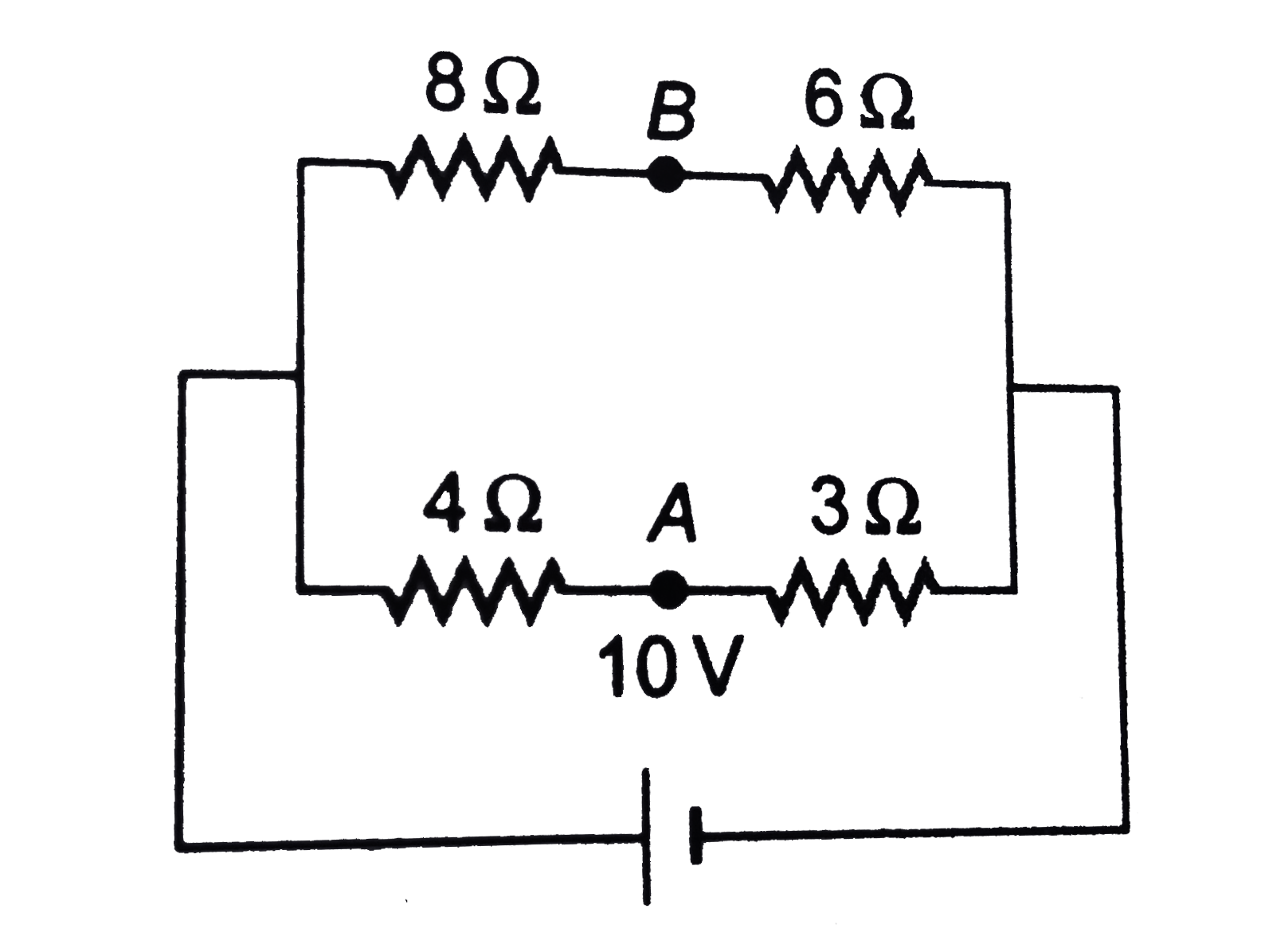
View SolutionThe potential difference between points A and B is
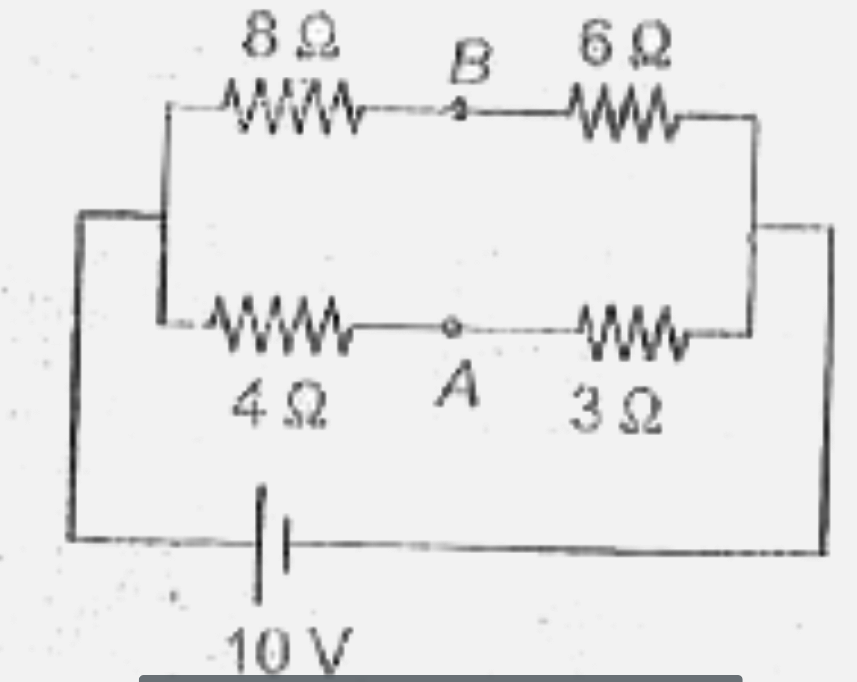
View SolutionThe potential difference between points A and B is

View SolutionFind theh potential difference between points a and b.
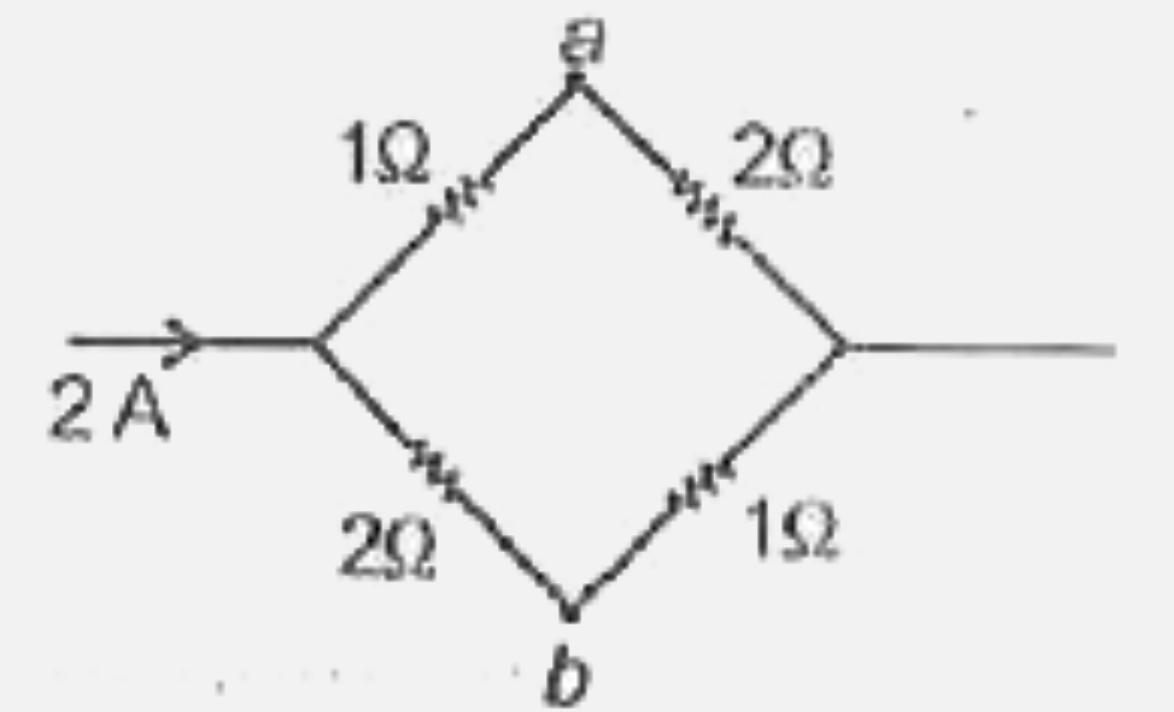
View SolutionExplain the statement 'the potential difference between two points is 1 volt'.
View SolutionThe potential difference between the point A and B in figure will be
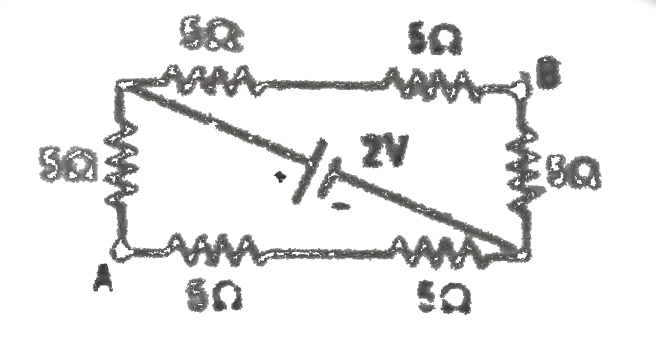
View SolutionA particle of mass m and positive charge q is released from point A. Its speed is found to be v when it passes through a point B. which of the two points is at higher potential ? What is the potential difference between the points?
View SolutionWhat is the potential difference between points A and B in the circuit shown?
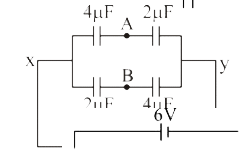
View SolutionIn given circuit , the potential difference between points A and B is
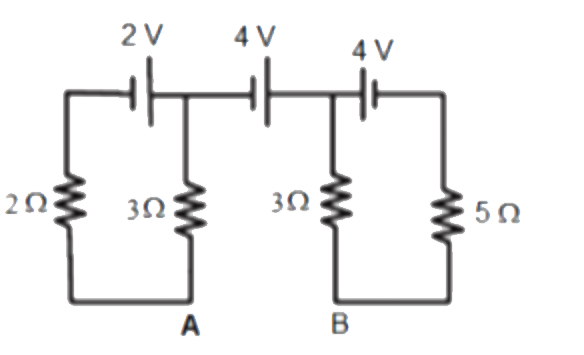
View SolutionIf in the circuit shown below, the internal resistance of the battery is 1.5Ω and VP and VQ are the potential at P and Q respectively, what is the potential difference between the point P and Q?
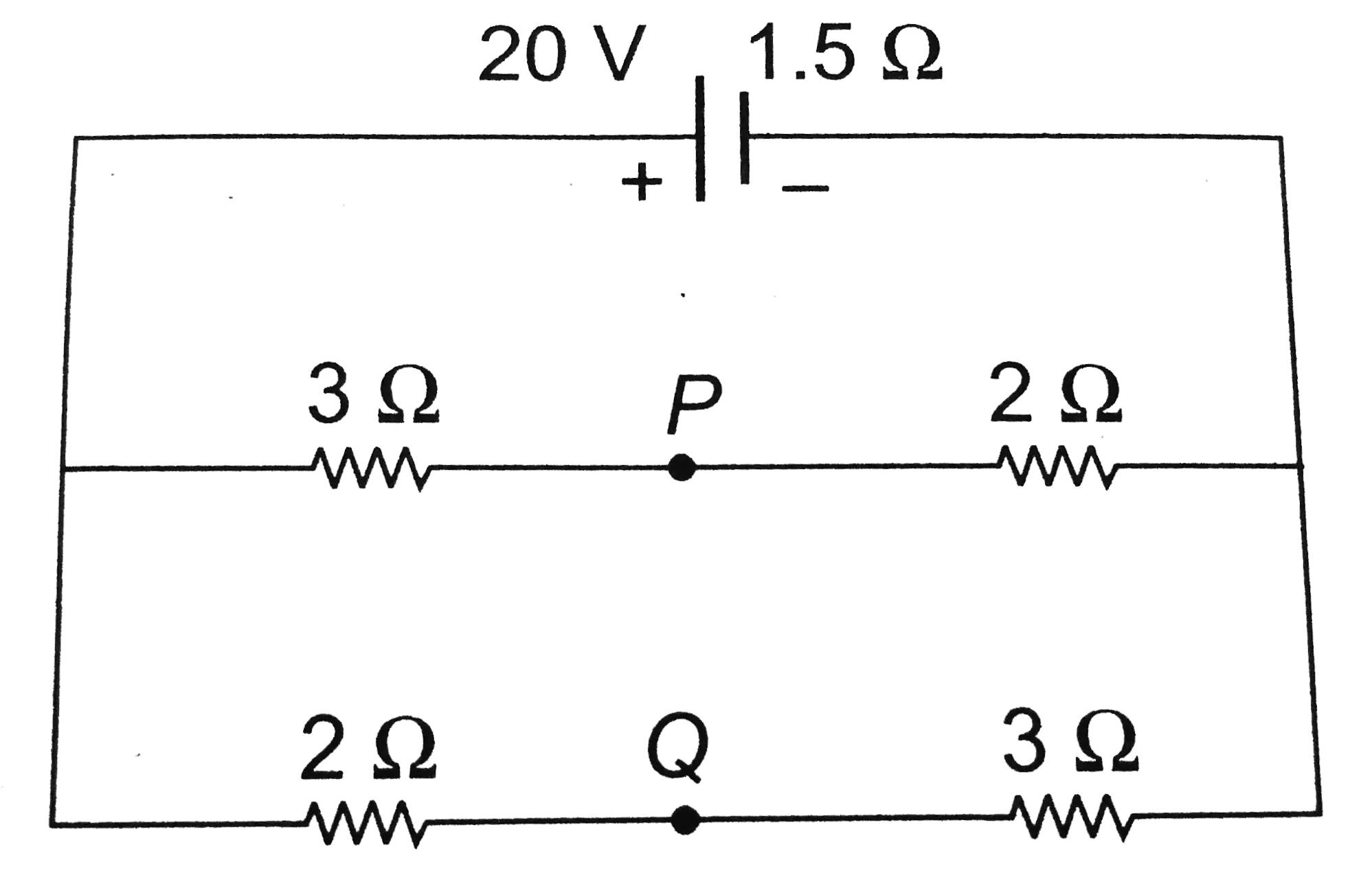
View Solution
